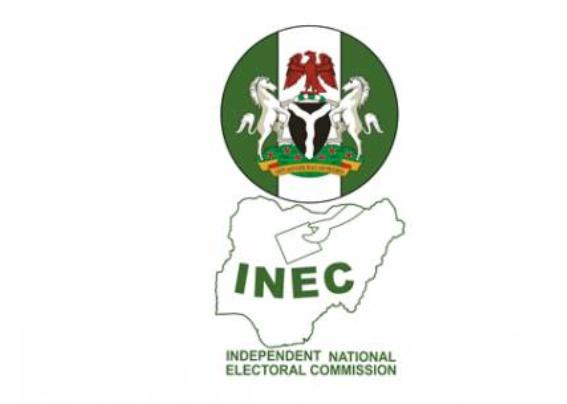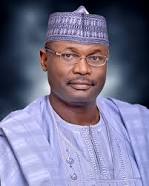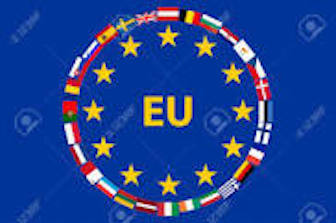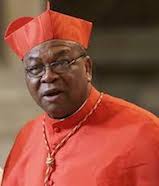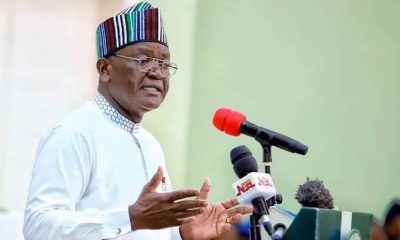view point
2023: Opportunistic Aspirants and the Gullible Public
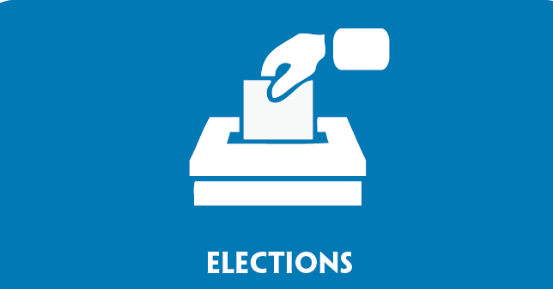
By Dakuku Peterside
The holy grail of democracy is the widespread participation of people in the business of power, legitimised by the representation of elected leaders. Participation is so meaningful that the noun derivative of democracy, democratisation, means “the action of making something accessible to everyone”.
So, on face value, the democratisation of “presidential aspiration” seems to be a good thing, and one may argue that this might throw up a pool of aspirants for the primaries for the people to choose, but the reality may be more sinister and a bad omen for our democracy.
The presidential aspirants’ field is getting crowded – the good, the bad, and the ugly are throwing their hats into the ring. In the past few weeks, more and more persons have indicated an interest in running on the platform of the two major political parties against all odds, including outrageous Expression of Interest and Nomination form fees.
The statistics of the aspirants for the two leading parties keep changing each day. APC has 23 presidential aspirants with a possibility of getting to 25 by the close of nominations and 241 Senate aspirants with a chance of getting to 300 at the close of nominations.
We have 821 House of Representatives aspirants with a possibility of getting to 1,000. For PDP, about 17 presidential aspirants, 301 Senate aspirants and 1218 House of Representative aspirants have declared their interest in the various posts for the 2023 general election and have already presented themselves for screening.
Never in the history of our democracy have many aspirants, at short notice, declared interest in occupying the highest position in the country than in this run-up to the 2023 elections.
Party nomination cost; tickets for sale? Democracy: Beyond symbolism and dramaWhither Nigeria: 6 months to election, where are the presidential aspirants?
The rash of aspirants is a symptom of too many negatives. Let us grant that democracy entitles every citizen to aspire to any position. We can even further concede that the sheer volume of aspirants to various elective positions could indicate a deepening of the popularity of democracy in our country.
Yet the sheer number, nature and character of most aspirants give us a cause for concern. A few pertinent questions come to mind: What socio-political context is pushing this new phenomenon, and what does it portend to our democracy in general and the 2023 general elections in particular?
Three major issues are working in tandem to fuel the rush for nomination for the presidential ticket and other elective offices. The first is the commercialisation of political offices in Nigeria. Politics is big business, and everyone knows that.
For the majority, the most accessible means to inexplicable wealth and power in Nigeria today is to hold a political office. Related to this is elite joblessness, making politics the most lucrative openly available sector.
The elite total engrossment in politics for economic survival is a breeding ground for rampant corruption. This transactional nature of politics means that no matter the outrageous cost of nomination forms and electioneering, the political elite is hard done, doing whatever it takes and at all costs to have access to these offices.
The second issue, especially for the offices of the president and governor, is what I will refer to as the demystification of these hallowed offices. Pre-independence and during the second republic, the people revered the president’s and governor’s offices.
We expected only people of a certain calibre, political dexterity, and intellectual integrity to even dream of applying for the office; much more to attempt to do. Unfortunately, recently, each election cycle inadvertently produces a declining quality of political leadership, which lowers the bar for those aspiring to occupy the office and causes public mistrust of officeholders.
The bar is so low now that people with no pedigree or experience in leadership, even in their homes, are aspiring to the president’s office. The third issue is deliberate positioning to profit from political consensus. The two major political parties in Nigeria lack a deep culture of internal democracy, cohesion and unity, and this anomaly is because they are not ideologically driven, and there are intraparty frictions among party members.
It is becoming common for political parties to resort to a democratic consensus to adopt candidates and avoid the ensuing brouhaha. Therefore, negotiations, deals, and rewards are given to those candidates at the table to arrive at this consensus.
So, the rush to purchase the N40 million or N100 million nomination forms may mean some aspirants buying a ticket to the negotiating table, where some would be asked to step down and promised rewards. And to be relevant, you must purchase your way to that table where the final act would play out before the convention, which may end in consensus or affirmation.
Another plausible reason for the proliferation of aspirants is not unconnected to a strategy by a tiny clique of serious aspirants to weaken the delegates’ base of their co-competitors. Political entrepreneurs around the presidency and commanding height of the two major political parties may also be manipulating the internal process of the parties to enable them to achieve a predetermined outcome.
These happenings have grave consequences for our democracy and the 2023 general election. The presidential aspirants’ field in the two major political parties has thrown up what I refer to as opportunists. Some of these aspirants had earlier indicated an interest in Senate, governorship or were hitherto not interested in the office but now are presidential aspirants.
They are opportunists who just saw an opening to take advantage of for varied reasons. A critical analysis of the character and qualities of some of these opportunistic aspirants shows traits that are worrisome to any true lover of democracy. These people put our democracy at risk.
We can easily deduce the enormous implications of these on politics and society. If those who always put themselves out to take up public office are so utterly bereft of character and the courage of conviction, what will be the fate of those public offices when they eventually get in? One unintended fallout of this crowded field of aspirants is that this may be the most expensive party primaries in our political history.
Typically, the democratisation of aspirants should be good for the various parties and society because it gives us broader options to choose from and quality leaders. However, in this Nigerian case, it is evident, based on our political context and antecedents, that the ongoing muster parade of aspirants is a signal of a political locust invasion whose ultimate impact would be to sack the national treasury and ground Nigeria.
This has broader ramifications for our development as a nation and people. Nigeria needs quality leadership now. Any actions that jeopardise that must be resisted by all. The public must not be gullible and allow the political class to play ping pong with their future.
This is the time to engage actively with the political process. Failure to do this may leave us with a decade of wasted hopes and dreams in the hands of charlatans, and political jobbers bent on holding our future and that of the next generation to ransom.
Peterside is a policy and leadership expert.
view point
Tinubu’s Certificate and Atiku’s Wild Goose Chase

By Tunde Rahman
Former Vice President and roundly defeated presidential candidate, Alhaji Atiku Abubakar, was a pitiful sight to behold on Thursday at the Shehu Yar ‘Adua Centre, Abuja as he sat like a wreck after addressing what he called a world press conference. He had gone on a wild goose chase to the United States in search of President Bola Tinubu’s certificate.
The former vice president however returned empty-handed after spending a fortune.
Atiku himself admitted his exploratory journey was at a hefty cost.At the press conference, the Waziri Adamawa discovered no new thing; he found nothing incriminating or untoward against the President. He is only currently engaging in political sophistry.
Apparently deluding himself that he came back from the US with a smoking gun, at his press briefing, he sermonised on the important issue of leadership and responsibility. Alhaji Atiku assaulted the memory of the late irrepressible lawyer and human rights activist, Chief Gani Fawehinmi, SAN, claiming Fawehinmi inspired his shameful, worthless and self-seeking expedition.Commending David Hundeyin, the rabble rouser who styles himself as an independent journalist, whose work he also said inspired him, it became apparent that both Atiku and Hundeyin were actually working together to embarrass President Tinubu.
Overwhelmed by his inordinate ambition, the failed PDP presidential candidate also shamelessly called traditional, religious, community and political leaders in the country including Labour Party’s Peter Obi and NNPP’s Senator Rabiu Musa Kwakwanso to rally round him in his political vendetta against President Tinubu.“This quest is not for or about Atiku Abubakar. It is a quest for the enthronement of truth, morality and accountability in our public affairs,” he said. And you wonder, what morality Alhaji Atiku was preaching. This is the same man who was indicted in the 2009 conviction of his accomplice, former United States Congressman William Jefferson, over bribery charges. Same man whose principal, former President Obasanjo, wrote a damaging testimonial on and whose years in Customs were signposted by corruption allegations.
If you have not read it, this is what former President Obasanjo said about Wazirin Atiku in Volume 2 Pages 31-32 of his book “My Watch”: “What I did not know, which came out glaringly later, was his parental background which was somewhat shadowy, his propensity to corruption, his tendency to disloyalty, his inability to say and stick to the truth all the time,a propensity for poor judgment, his belief and reliance on marabouts , his lack of transparency, his trust in money to buy his way out on all issues and his readiness to sacrifice morality, integrity, propriety truth and national interest for self and selfish interest.”
It is pertinent at this juncture to clarify some of the issues that emerged from the deposition by President Tinubu’s former school, Chicago State University, in order to understand Atiku’s deliberate and malicious distortion.
Speaking on oath in the testimonies contained in a deposition made in the Office of Angela Liu, Atiku’s legal counsel, in Chicago, US, CSU Registrar, Caleb Westberg declared that President Bola Tinubu attended and graduated with honours from the institution in 1979. He in fact asserted that President Tinubu is the same person who attended the school from 1977 to 1979. “We believe Bola Tinubu who attended CSU is the same person who is the President of Nigeria today. Tinubu is an unusual name in the US. He matched the records in the file against the information provided by the student or on behalf of the student.”
On the insinuation by Atiku’s lawyers that the Bola Tinubu who attended the school was a female on account of a clerical error spotted against Tinubu’s name, Westberg disclosed that the admission letter issued to the Nigerian President evidently proved he was a male and attended the school between 1977 and 1979.
Probed further to confirm if the Tinubu that enrolled at the school was a male or female, the registrar insisted, “Tinubu applied to the university as a male and a letter of admission was issued to a male.
“There were materials in Mr. Tinubu’s records that show he was a male in the application to CSU. Mr. Tinubu identified himself as a male. His letter of admission identified him as a male. It says: ‘Dear Mr. Tinubu’”, he said.
It is relevant to point out that in the US, premium is not placed on certificates, otherwise called diplomas, as we do here. Certificates are merely ceremonial. The emphasis is on transcripts. Employers and schools offering admissions for higher education will only ask for previous transcripts.
In most cases, the certificates are also printed by third party vendors. Many certificates are left uncollected because what is important is the transcript. The CSU has diplomas that students didn’t pick up in its possession.
“I have the diploma that was made available to Mr. Enahoro-Ebah in our possession because Mr. Tinubu did not pick it up. I do not have the diploma that was submitted to INEC in our possession because he had picked it,” Westberg clarified while responding to another question.
Other matters also came up during the over five-hour interrogation session that I do not want to bore you with in this piece. However, it is surprising that Atiku and co would claim President Tinubu forged his certificate simply because the CSU Registrar said he could not authenticate the certificate presented to him by Atiku’s lawyer as the document Tinubu presented to INEC for the 2023 Presidential Election. He said he cannot confirm because only Tinubu has the certificate which he ordered and which had been picked up for him and that the school does not keep students’ certificates. Nowhere in the interrogation did Westberg use the word fake or forged as Atiku’s lawyer tried to make him say so. Fact is there is no scintilla of doubt that President Tinubu attended and graduated from CSU. As my colleague, Temitope Ajayi, pointed out in his widely-publicised tweet, “You can only forge a certificate you never earned.” President Tinubu honourably earned his degree and he had no reason to forge the certificate of a degree he had in his kitty. He graduated Summa Cum Laude, with distinction. He was on the Vice Chancellor’s Honour List for all his years in the school. Insinuation by anyone that he forged a certificate he worked for is sad and misleading.
Indeed, attempts by some to liken the situation with those of the disgraced former House of Representatives Speaker, Salisu Buhari and former Minister of Finance, Kemi Adeosun are disingenuous.
Former Speaker Buhari forged the certificate of Toronto University he never attended. He was removed from office for the forgery. Former President Obasanjo later pardoned him. As for former Minister Adeosun, those who brought her to limelight and sponsored her for the ministerial appointment arranged a fake NYSC exemption certificate for her to scale Senate screening. The same people did her in when disagreements broke out between them, giving her away as a certificate forger over which she eventually resigned. The cases are markedly different: President Tinubu earned his stripes.
In the final analysis, it is yet unclear how Atiku plans to benefit from whatever he claims to have brought back from the US. Certificate forgery was not pleaded in his election petition now at the Supreme Court. Without being a lawyer, this is a civil case and I understand you can’t make new pleas or present new evidence in a case that has passed the court of first instance and is at present on appeal at the Supreme Court.
What the Waziri Adamawa has demonstrated in all of his Shenanigans is that he is a sore loser. Will he gain what he failed to get at the ballot through his present indecent and unpatriotic overseas search and unfounded and hollow discovery, making a mountain where there is even no molehill, unnecessarily heating up the polity and denigrating the Justices of the Supreme Court? I don’t think so!Rahman, former Editor of Thisday on Sunday Newspaper, is a Presidential Aide.
view point
Echoes of New Beginning
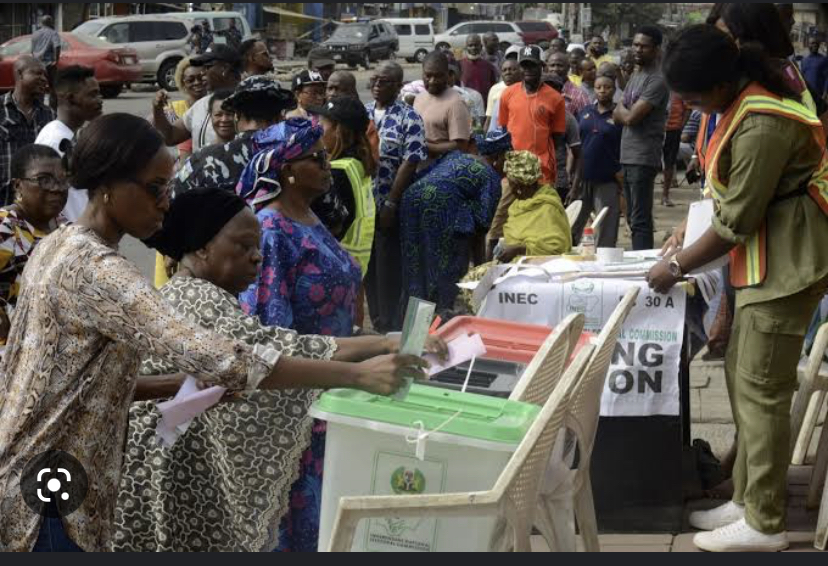
By Dakuku Peterside
Last Saturday’s presidential election marks a new beginning for Nigeria, if not literally, then clearly symbolically. Nigerian voters defied hunger, Naira crisis and appropriated that moment as a clear point of departure from the past. They embraced the election as if their lives depended on it.
The general high level of enthusiasm lifted voter turnout and reinforced confidence in democracy. Young people saw it as a chance to “get back their country”, plagued by bad leadership and underdevelopment. The fanfare and zest with which Nigerians trooped out in their numbers to perform a ritual that may not have rewarded them in the past but still managed to sustain their hope of a better future was electric. The presidential election revealed a divided, disillusioned, and disaffected Nigeria. Despite whatever will be the election’s outcome, most Nigerians believe the electoral process is a radical improvement on previous exercises, considering the size and complexity of the country. Previous polls have been anticlimactic both in process and outcome.Nigerians hope that this election will usher in a genuine democratic leader that represents the choice and voice of the people. The elections were generally peaceful and orderly, save for pockets of skirmishes in flashpoint states where thugs disrupted the polls, carted away ballot boxes, or tactically disenfranchised voters.
Regrettably, bad habits of thuggery and violent disruptions of the process resurfaced. Blatant violent hooliganism in states like Kogi, Lagos and Rivers overwhelmed security arrangements.
According to media reports and from the account of observers, youths turned out in their numbers to vote. Voters’ turnout from observation, in general, may be better than in the recent past, where voter apathy was prominent, and there was a continuous decline in the number of voters in each subsequent general election. Most persons who observed the polls I have spoken to are cautiously optimistic that it would be a relatively free and fair election, thanks to the recent amendment of electoral act which gave legal backing to Bimodal Voter Identification System ( BVAS) and other technological devices. From snippets of results, old political fiefdoms seem to be crumbling. Nigerians have rejected politics of hate, violence, and intolerance. If this is the case, it will mark a watershed in the political history of Nigeria.
Discerning persons must have observed four different echoes and reverberations with the elections. The first echo is that INEC prepared better this time around when compared with previous elections. The level of the organisation before and during the polls shows an improved INEC operation. INEC carried out voter sensitization, conducted mock exercises and reasonably assured the public of its best intentions . The use of technology was good, as voters can even find their polling units online. The identification method in polling units was remarkable, and we must commend INEC for even using the technology in remote parts of Nigeria. The BVAS technology generally worked, with failure in few places. Overall, the quality of the election conducted has improved. This evidences that Nigerian institutions can work if we are ready to do the work required to improve them.
However, there is also an elixir of mixed feelings about INEC’s preparation for this election. INEC allowed many familiar slip ups in logistics. Backup batteries for BVAS devices were not available in most places. INEC staff turned up late in a number of places. Voting started late or did not even take place in isolated instances. But given the tripartite problem of cash scarcity, fuel scarcity and infrastructural deficiency, one can only imagine the enormous challenge of organising this election in almost one hundred and seventy seven thousand polling units nationwide. Given the recurring logistics challenges in our elections, INEC must develop better ways of solving these problems to improve Nigerians’ voting experience. It is unfair that voters turned out to vote and either did not see INEC officials or the officials came late.
This lead to some voters being disenfranchised completely, or voting spills over to the following day. Besides, INEC officials could not upload the results from the polling units. This is a critical low point of the elections. Electoral fraudsters will probably “doctor” the results to their advantage — the same complaint all over the Federation.
The second echo is the high turnout of youth voters. Traditionally, Nigerian youths are dispassionate with politics and the electoral process. This was a shame, given that they comprise a more significant part of the population. In previous elections, voter apathy among youths was high, and most young people would rather be doing anything else than queue to vote in elections. Previous election post- mortem analyses often lambast youths’ lack of interest in the electoral process. The number of young people engaged in this election is remarkable and marks a departure from the old. The overwhelming youth turnout reinforced the future as the domain of youth.
This is significant in three ways: first, it may be a sign that the youths have suddenly realised that they have a part to play in selecting the country’s leaders. Youths’engagement in social media has made them adept at sharing their political views and championing political ideas. The second is that this large turnout signifies rebellion against orthodoxy. Young people are dissatisfied with the status quo and have decided to influence their future through political mobilisation and participation. Students of political sociology may need to chart the youth’s political consciousness through the various conflicts between the young people and the system (institutions, agencies, government), as seen in the ENDSARS revolt and other pro-youth agitations. These movements have crystallised in youth political advocacy. The third is that the large turnout of youths signifies their willingness to use their strength in number to take back political control from older leaders who have captured power in Nigeria for a generation. We hope that the extension of this considerable youth turnout in the next few years will signpost the young presenting themselves in more significant numbers to be voted for and metaphorically taking back their country.
The third echo is that many Nigerians have started demonstrating faith in the electoral process.
There was also a higher than usual awareness of democratic rights as voters strongly pressed their rights and opposed those out to violate those rights. The level of political awareness is encouraging and remarkable . The mantra in this election has been that “your vote counts”, and with the new voting technology, election rigging is brought to a minimum. This has inspired confidence in many people to vote. This will deepen our democracy and its corollary good governance in Nigeria. It is also significant to note that this is the first election since 1999 where none of the presidential aspirants came from the military. Nigerian democracy is gradually growing away from the control and influence of the former military generals who captured power and have defined our politics for over fifty years. Nigerians in this election have demonstrated their love for democracy and are willing to participate when they believe in the process. I hope that subsequent actions and inactions of the political gladiators and institutions post- election will be democratic. The calling of the election result, the declaration of victors, the litigations and appeal routines, the transition process and forming of the new government are all flashpoints that must be followed with caution and due democratic tenets to sustain the democratic bubble this election has created.
The fourth echo is that Nigerians want a new Nigeria and are full of new expectations from the incoming president. The new leadership faces high expectations from Nigerians who believe we are at the breaking point and things are no longer at ease. Nigerians expect the president-elect to chart a new course for the country towards economic, technological, social, and political regeneration that will improve the living standard of Nigerians. Nigerians are tired of suffering and living in the hope of a better Nigeria which honest leaders can build from our endowments. Whoever emerges as the president has his job cut out and must quickly act before Nigerians lose their patience. Whoever is declared victorious has no option but to embark on radical reforms on all fronts. He must initiate policies and programs that address youth concerns, particularly education, employment creation, insecurity, infrastructure, and good governance.
There is no doubt that Nigerians, both at home and abroad, are expecting a new and better Nigeria going forward. The election has sent echoes reverberating across time and space for a new beginning—a fresh start for more incredible things. Building the Nigeria of our dreams is a task for all and getting the leadership right is the first step towards achieving a greater Nigeria. We must continue with the passion and optimism of the election and put them to better use in productivity and innovation. I hope our youths are awake and in tune with the realities of our time. The future is for them, and they must work hard to build it. Economic and political participation is necessary for such growth. I implore all Nigerians to dare to dream of a better, greater, and prosperous Nigeria.
Dakuku Peterside is a policy and leadership expert.
view point
Promoting Global Good Through Community Shared Future
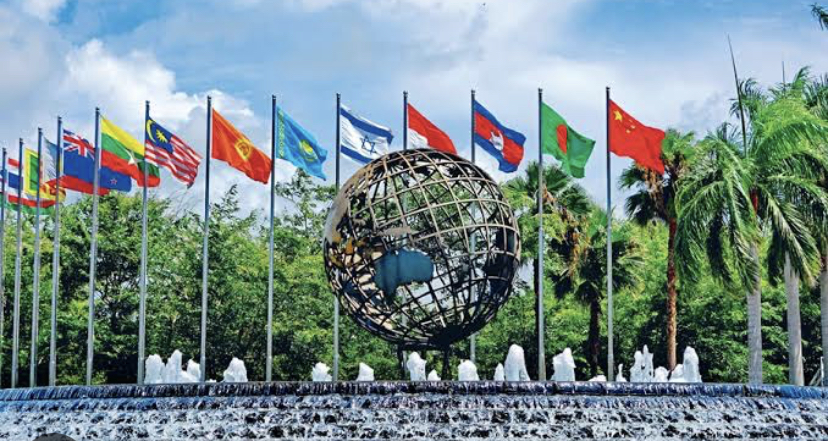
By Fortune Abang
The year 2022 has come to an end. As it drew to a close many people reflected on old thoughts and beliefs and prayed for peace and security as they embraced the year 2023.
Such were the thoughts by academics, diplomats, Diaspora Nigerians and government officials in their evaluation of 2022 and expectations in 2023.
At the international community level, resolving the Ukraine-Russia conflict featured prominently, as well as measures to stem the effects of the COVID-19 pandemic which stalled economies and rendered millions jobless.
Some diplomats and academics who spoke on the forward said resolution, agreements, and other diplomatic initiatives aimed at promoting global good and community shared future should not be just on paper but be matched with action.
According to Prof. Wang Yiwei, a teacher at the School of International Relations, Renmin University, China, there is the need for adequate investment in building a community of shared future to strengthen nations’ sovereignty and promote economic growth.
Wang is a Director at the Institute of International Affairs and also Director of China-Europe Academic Network (CEAN) as well as the Director of Centre for European Union Studies at the university
He spoke to reporters in Beijing, on the sidelines of a lecture titled: “Common values for all mankind and building a community with a shared future for mankind”, organised under the auspices of the China Africa Press Centre (CAPC) Programme 2022.
“There is the need for countries to respect each other’s sovereignty, religious beliefs and common values for humanity.
“Shared future is value-based; today we see a community of shared future from the rise of China’s. The China experience does not to mean a challenge to other nations or a hegemony in charge of other hegemonies.
“It tries to answer the meaning of the great regeneration of the Chinese nation. Today China is globalized, a digitalised and agricultural society”, Wang said.
In the same vein, a diplomat who pleaded anonymity told reporters that unlike before, no country can hold hegemonic power in terms of modern Global Development Initiative (GDI), saying that neither US, China nor Russia can do that.
According to him, today’s mutual connectivity has helped to connect the world and form a block chain to gain knowledge about deepening community shared future.
“We should understand and learn from each other. Nations should not assume that they are moral standard bearers; so advanced that they don’t need to listen to others. This is not good for global peace and prosperity.
“No one can dominate another in the new world order because a community shared future will help to ensure that nations share common dreams.
“Such concept will help countries like Nigeria to achieve their goals; a community of shared future is important because it helps us to think collectively about the good of mankind.
“It is not just about thinking of yourself; your postmodern cannot interfere with your pre-modern because you are advanced”, he said.
The Chairman, Board of Nigerians in Diaspora Organisation-Americas (NIDO), US chapter, Dr Eromonsele Idahosa, underscored the need for compatriots to always invest in goals that promote community shared future to sustain Nigeria’s leadership in Africa.
“Although Nigeria is confronted with an existential crisis; we have a lot of work to do.
“We have to invite other partners and stakeholders in the Nigerian project to join in carrying out this enormous task; this is not the time for cynicism and negativity”, Idahosa said
Meanwhile, the Minister of State for Budget and National Planning, Mr Clem Agba, represented by Dr Philip Ugbodaga, his pecial Assistant, at the first edition of the Europe Open Day celebration, expressed optimism that Nigeria has the human and natural resources to sustain its economy and leadership position in Africa.
“We have an estimated population of more than 200 million expected to grow to more than 400 million by the year 2050, and become the third most populous country in the world after China and India.
“Government is vigorously pursuing special policies aimed at creating opportunities and avenues that can empower youths to contribute more meaningfully to their communities and to the country,” Agba said.

